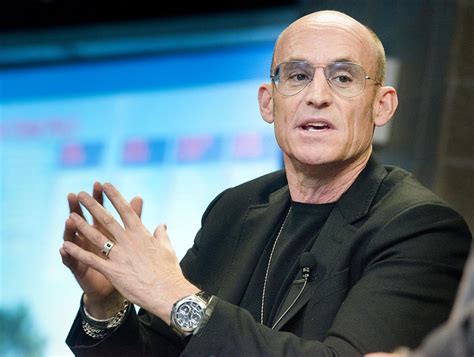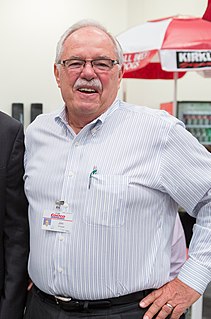A Quote by Julia Hartz
Creating a strong company culture isn't just good business. It's the right thing to do, and it makes your company better for all stakeholders - employees, management, and customers.
Related Quotes
The CEO announces that the purpose of the firm is to improve the lives of the customers and the lives of the firm's stakeholders and the quality of the planet. The company will give fair compensation to all the stakeholders and the CEO will not earn more than 20 times the median income of his employees. He will want his employees to rate him, just as he also has to rate them.



































